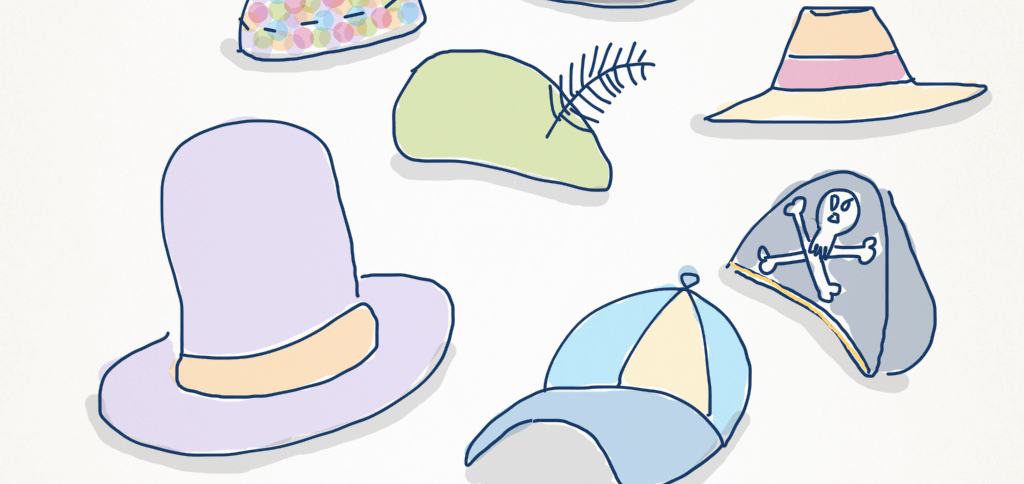When someone on the street or at a party asks me, “What do you do for a living?” I usually say I’m a web designer.
It’s the answer that most people understand, and it’s partly accurate, although it’s not the full story. But if I were to respond with “I’m a user experience designer” then the conversation that follows is often much less straightforward. People either think I’m trying to big-note myself—to sound more important by using a fancy title—or they are genuinely confused and can’t grasp the idea, even when I go on to explain it. “I’m a web designer” is just easier.
But when it comes to talking to clients, recruiters and co-workers, I make a point of the fact that my job title is user experience designer. Why do I believe it’s important to make this distinction for this audience, rather than just calling myself a web designer? Here are a few reasons why I don’t describe myself as a web designer:
- It implies a strong command of HTML, CSS and JavaScript (and maybe Flash).
I used to be across all of the latest techniques for achieving cross-browser compatibility and elegant separation of markup, style and behaviour. For a while, I wrote a regular column for a leading web development resource, writing about these very topics. But these days, I’m simply not able to keep up with such a constantly changing landscape. Most of what I do involves creating surveys and conducting interviews, sketching and refining ideas, running user tests and designing visuals in Photoshop. I benefit from having a reasonable knowledge of how to write best practice code, but I just don’t spend as much time doing it these days (and I’m OK with that).
- It ignores all the other platforms.
The web is a delightful platform to design for, and the one I know best, but it’s not the only platform. These days I also apply my design skills to desktop software, and more recently, native mobile apps. The technologies, constraints and conventions in each of these platforms may differ, but the process I follow and many of the principles that guide me are identical. These skills are transferrable because they are derived from the user, not the technology.
- It comes with baggage.
The immediate image that many people conjure up of a web designer is that of a 14-year-old with a pirated copy of Photoshop and Dreamweaver. Describing yourself as a web designer undersells the professionalism and experience you bring to a project or a client. The very term evokes both generalisation and specialisation, because that’s what is required. UX designers are specialists at being generalists. And they may be specialists in something else too!
- It ignores the processes, techniques and disciplines upon which UX design is based.
The term “UX” is most often used as an umbrella term that spans all stages of a product lifecycle, from research through to post-launch maintenance and everything in between. There are many activities performed by UX designers that inform a design but are decidedly non-designy. Techniques such as collecting user research, creating an information architecture, creating user profiles and user stories—these are all skills that specialists have formed entire careers around, but aren’t reflected in the term “web designer”. If you’re doing some of the activities under this umbrella and not effectively communicating that fact to your clients or in your marketing, you’re underselling your skills. Likewise, the user-centered design process is well established, having evolved years ago from the fields of psychology, sociology and ethnography. The fact that it’s broad by definition encourages practitioners to step back and appreciate a project from afar, to fully comprehend the big picture.
- It’s not how more experienced roles are advertised.
Companies that don’t utilise the web in a big way as part of their business probably don’t need a UX designer—they need a web designer. The requirements for their online presence is not complex—they may be a restaurant looking for a simple site that displays contact details, a map to the restaurant and a downloadable menu. Other than a blog to complement the core content, the site is largely static—basic pages that do not change over time. These companies need a web designer.
However, a company looking to create a complex application (think Google, realestate.com.au, Telstra) needs someone with experience in designing this complexity and matching it to the needs of the specific users of that application. Therefore, the language used by recruiters and companies hiring for people to work on these complex web applications is different. Job ads use the terms user experience designer, interaction designer and information architect. In the current job climate, the demand for these roles (and the corresponding salaries) are higher than that for web designers. In short, if you market yourself as a user experience designer, rather than a web designer, you will be paid better for the extra value that you bring to the client than if you market yourself as a web designer.
I’m not suggesting just changing your job title without backing it up—I’m suggesting you educate yourself about user experience design so you can offer a more targeted service than purely “web design.”
Not that there’s anything wrong with calling yourself a web designer, but I believe that doing so limits your opportunities to designing static sites for small (mostly offline) businesses. Once a website requires additional complexity, it’s not good enough for a designer to neglect to take into account the psychology and behavioural issues facing that site’s users, or the best practices derived from the UX body of knowledge.
To do so requires far more than skills in Photoshop and Dreamweaver or HTML/CSS skills. It requires a process that incorporates best practices, an understanding of behaviour and human psychology, strong communication and inquiry skills, and experience in applying these techniques in a way that will deliver the best result for your client.
What title do you use when you market your services? I’d love to hear your thoughts and reasoning in the comments.






Thanks for such a perfect website and informative one . actually what I’m asking about the UX designer’s job , is his/her part of job to do testing by themselves or is it about research and evaluate the users by using testing sessions and sorting cards? another thing , how do i find users to test websites? should I have to charge them? should i select users by sectors “Age,Gender,…etc”?
Thanx :)
Hi Tamer – good question. The UX designers job should adapt to the requirements of the project, and to the stage of the project, although I’d say that it should put more emphasis on being objective by relying on real user input rather than relying on the personal judgement of the UX designer. Test sessions and card-sorting are both good ways of collecting input from the users, whereas a ‘heuristic’ analysis is something a UX designer can do on their own but is more subjective. To answer the first part of your question, I’d probably say ‘both’! I wrote a bit about this in my post about balancing user research with user testing: A Time Poor, Small Budget Approach to UX.
Finding users to test with can be as easy as asking friends or other people in the office, or asking for help by putting a call out on the website or via Twitter/Facebook. If you need more rigorous input (perhaps because there is a lot of money or reputation riding on the outcome of your work) it might be worthwhile getting a research recruitment company to help find some participants. It’s not unusual for the recruiter to charge $90-$150 per participant they find. And on top of this you should still incentivise and recognise the participant’s help by paying them too – usually somewhere between $50-$100 per hour of the participant’s time is fair, plus maybe a little showbag that contains a product related to the project or business involved. The users you select should reflect the audience of the product/business you’re working on, and you should aim to get a representative spread, but if you need to get more specific you can also hone in on people that exhibit a particular behaviour you might need more info on.
Cool info!
Whatever it is, all I know is Web Designers earn an awful lot of money especially in Australia. :) I have to share to you this Infographic that might entertain your thoughts on relocating to that country.
Unlike India or some other countries like South Africa and Canada, Australia’s web designers’ wages are very high. The average salary is more than $98,000. Great life for tech geniuses like you.
“The immediate image that many people conjure up of a web designer is that of a 14-year-old with a pirated copy of Photoshop and Dreamweaver.”
Wow, what a rancid sweeping statement.
Jamie, as a ‘web designer’ myself I can understand why you’d see it as a sweeping statement, however I think what Matt is describing is the legacy of our industry being embraced by the younger crowd (I was one) earlier than others, and that this was particularly visible in the local and small-business corner of the web design world where most people come across web designers. I’ve been in plenty of situations where people’s initial approach to me and expectations of what I do reflects this. At the same time, for some people I still often introduce myself as a ‘web designer’. The important thing is that I’ve learned how to explain it in a way that advances people’s understanding of what this actually involves.
Thanks for these valuable information. Its very helpful to me bater understanding difference between ux and web designer. im working right now as a web designer and want to develop ux skills also so will you plz guide me which right way i follow for starting ux designer career.
i want help plz guide me which right steps i follow for become ux designer.
Thanks
You’re very welcome Rachana!
A good start would be to start using some UX techniques in your current web design work. You can find all sorts of information here on UX Mastery (such as my article on A Time-poor, Small-budget Approach to UX).
Or you might consider signing up for an online course, such as David Travis’ excellent UX course that we reviewed back in March. As a UX Mastery subscriber you can also get a 20% discount.
Keep me posted with how you go, and please let us know if you’ve got any more questions.
This is a lazy path to take. It’s taking all of the high level and conceptual stuff of the web design profession and running with it, while getting rid of the challenging aspect of being able to code and actually make designs interactive, and then professing it to be the more noble and professional path to take. As someone who spent lots of money and time in college learning the many different aspects of this profession to achieve a degree in interactive design, as well as many years in practice, I am kind of offended by this.
Spotted this a bit late (apologies) but here goes: nobody said anything about roles that don’t involve coding being more noble or professional, or that one shouldn’t get the experience you need to do a good job (whether that’s via university or otherwise). Just an acknowledgment that the term “web designer” carries baggage and may be underselling what you do. What term do you use when you pitch your services to clients, Starrie?
Thanks for the article. I’ve always introduced myself as a web developer but in many ways it has the same response as a web designer and the 14 year old analogy creeps into mind. I often find it frustrating to tell recruiters that I’m a web developer as they probably get a ton of CVs through with that title glued to the front page. As you suggest if you’re into specialist design and don’t want to be put in the same bag as the less specialist (I don’t mean that in an insulting way) then the term you use could define you. Great, but what if I wanted to define myself as a web developer. I script, design, project control and organise complex projects and information and I’ve often learnt how to do the clients job as well as known each of the products or services as well as the client. I’ve had job titles such as head of digital and digital project manager or director of creative an digital but I can’t seem to come up with a name to define my skill set and so I call myself a web developer which is really underselling me.
Hi James. It sounds to me like you are indeed a web developer who just happens to be really good at all the project management and client management stuff. I have seen the term “UX developer” thrown about before. I don’t know how I feel about this, but perhaps you could try it on for size.
Also, I know in the US that software developers use the term engineer, while here in Australia that is usually reserved for someone who has a more traditional engineering degree, such as civil, mechanical or electrical engineering. Software engineering is a relatively well understood and respected term. It may not cover all of the client/project management stuff that you’re good at, but it may be worth considering. Good luck!
Thanks for your advice Matthew. I’ll try that and comment back for anyone else in my shoes.
Just a note to say thank you for the best post I’ve read all week – researching and educating myself online, I spend way too much time reading through posts/articles that don’t include the information I need, are convoluted, disorganized, filled with impenetrable jargon and acronyms or are a minefield of marketing boobytraps.
Thanks for demystifying one more tech life acronym.
Cheers
You’re welcome GG! Glad our style of explaining things resonates for you. :)
Hi there
I’m a UX professional with eleven years experience who wants to become a Web developer. Why? I’m looking to start using sites where I can ‘sell my skills’ so I can work remotely. I do know that you can get UX roles on these sites, but as you said at the beginning of your piece, it’s easier to say you are a Web designer rather a User experience or UX Designer. I haven’t done much pixel-perfect design stuff, but I’ve done everything else. How do you learn design? Stupid question I guess. But I could get to within a pixel of having completed a design that may include some research, testing even and conceptual design. But not design as the punter sees it.
How can a Web Designer design something if he/she doesn’t know about User Experience (UX)? This UX hype is just a way for “professional” schools to make more money. And people who can’t design nor code will call themselves UX experts, because they can make wireframes and prototypes using some cheap tool or Bootstrap.
Ux is an analitycs metodology
So great work for informing us of the possibilities and following a certain path.
I really appreciate your hard work an giving us some information and inspiring others to follow.
Thanks so much.
In which field are best future in UI / UX or Web designer
thank you for the article. From what i am reading and understanding, the UX designer is more of a hybrid of the traditional business analyst role, with a bit of a slant towards new ways of working. Therefore a strong orientation towards Agile is also required. Is my assumption incorrect?
You’re welcome. :) UX designers look for the sweet spot between business needs (the traditional BA role) and the needs of the people using the product or service. Yes there are new ways of working that have grown from necessity (implied by an agile or lean context perhaps) or because we’ve borrowed them from other fields (such as industrial design, library science, filmmaking, ethnography, etc), but it wouldn’t be accurate to say UX designers must know how to be agile, nor would it be true to say UX designers must use new ways of working. Many of the core methods for research, analysis or design have been used consistently and successfully for at least 30 years, if not much longer.
Great article. I’m facing many of these issues as well..